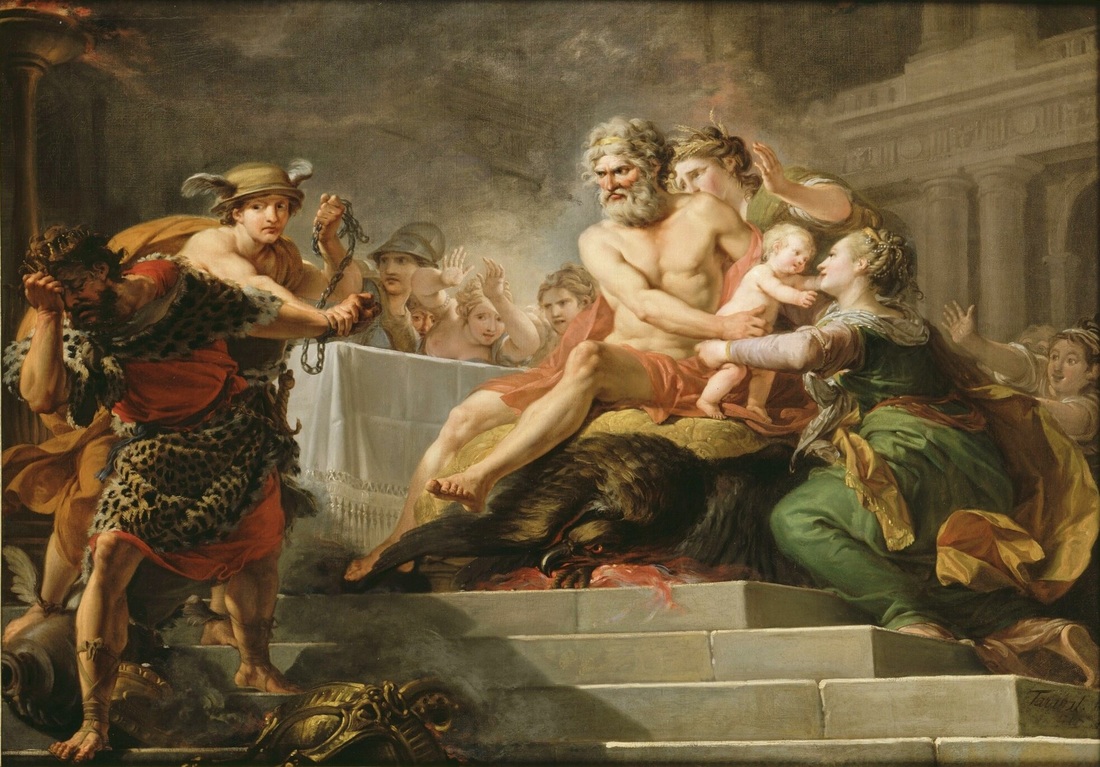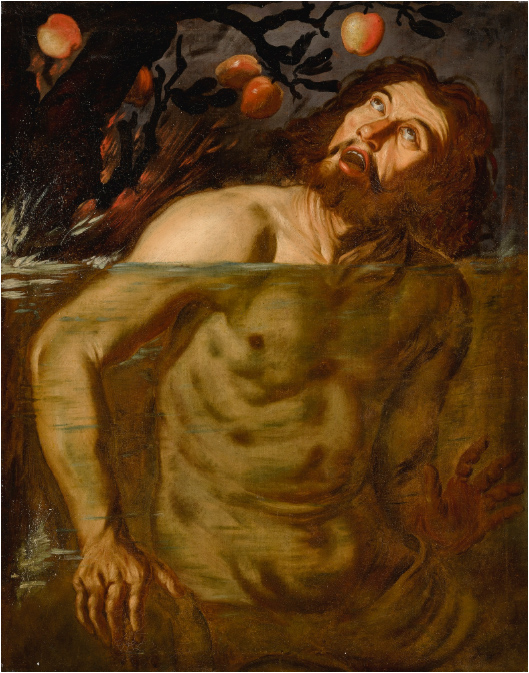Tantalus
Tantalus: The Insatiable King with Defiant Arrogance and Eternal Punishment in Greek Mythology

Tantalus became known for the immortal punishment he endured, as he was always trying to reach fruits that continuously moved just out of his grasp. This was his punishment for a series of crimes that offended the gods.
Tantalus was the son of Zeus and the Oceanid Pluto. Despite the various versions regarding the location of his kingdom, Tantalus was a king. Some claim he ruled in Sipylus of Lydia, while others assert he held power in Phrygia or Paphlagonia. According to the ancient geographer Pausanias, Tantalus's tomb is located on Mount Sipylus, while modern archaeologists have suggested various other possible locations. However, the myth of Tantalus does not provide enough information to connect him to a historical figure.
According to the myth, Tantalus married twice and had many children. His daughter Niobe offended the gods by claiming that her children were more beautiful and worthy than the gods' own children. As punishment, Leto, Apollo, and Artemis killed Niobe's children and turned her into stone on Mount Sipylus.
The tragedy continued into Tantalus's generation. His grandsons, Atreus and Thyestes, competed for the throne of Mycenae. This enmity persisted into the next generation when Aegisthus, son of Thyestes, murdered Agamemnon, son of Atreus.

Tantalus offended the gods in various ways. As a son of Zeus, he was always welcome on Olympus, where the gods invited him to partake in their divine feasts. However, by his behavior at the table, he insulted the gods by revealing the forbidden recipe for nectar and ambrosia and divulging other divine secrets he heard during the feasts.
Tantalus committed another heinous crime, which was considered even more serious. It is said that he invited the gods to a meal, perhaps to atone for his bad behavior, but decided to test their omniscience. Thus, he killed his own son, Pelops, and cooked him in a cauldron, serving his flesh at the dinner to see if the gods would detect this inhumane act. The gods realized the heinous act and refused to eat. However, the goddess Demeter, who was grieving the loss of her daughter Persephone, who had been abducted to the Underworld, unknowingly ate Pelops's shoulder. The gods managed to resurrect the child and gave him a new shoulder made of ivory to replace the one that had been eaten.
However, they never forgave Tantalus for his atrocious act. It is said that Tantalus had stolen a golden dog that belonged to Zeus or persuaded someone named Pandareus to steal it on his behalf. When questioned, Tantalus swore by Zeus, his father, that he knew nothing about the dog. Zeus was so enraged by this false oath that he hurled a rock from Mount Sipylus at Tantalus, killing him. The king was then transported to Hades, where an even more torturous punishment awaited him.

In Tartarus, the place designated for the punishment of all sinners, Tantalus was condemned to stand in a pool of clear water up to his chin. However, every time he tried to stoop to quench his thirst, the water level would recede, leaving the water tantalizingly out of reach of his lips. Above him hung branches laden with luscious fruits, juicy and tempting. But every time Tantalus tried to enjoy them, the wind would lift them persistently, unbearably far from his reach. According to another myth, Zeus imposed on Tantalus the task of carrying a massive rock, so beyond the hunger and thirst that tormented him eternally, Tantalus had to face the fear that the rock would crush him, as it continued to balance above his head.
Tantalus's fate became a cautionary tale for those who fell into the trap of provoking the gods' wrath. In the Odyssey, when Odysseus visited the realm of the dead, he saw firsthand the torment of Tantalus. Homer described the trees with peaches, pears, fresh apples, enticing figs, and olives that eternally tormented Tantalus.